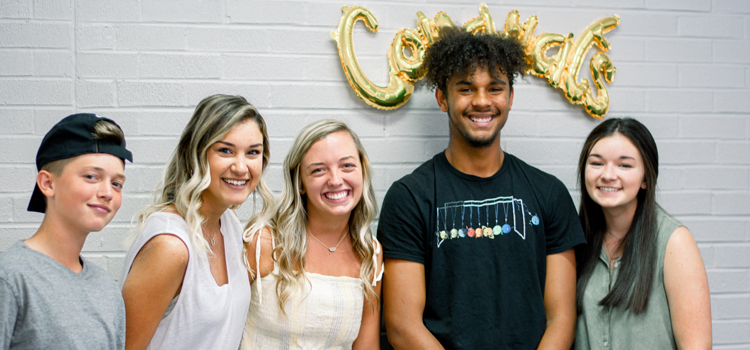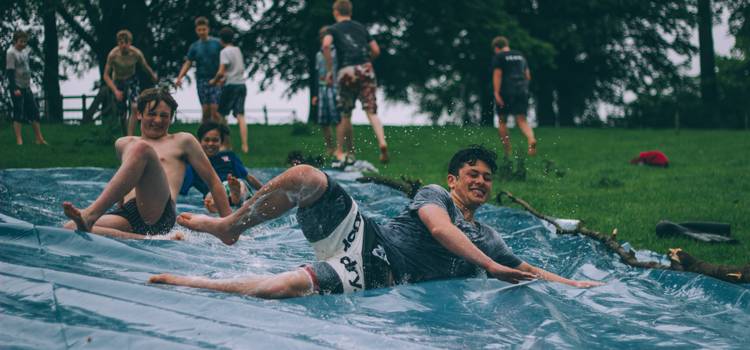For campers, every summer has its own unforgettable memories, however there are two in particular that are pivotal: the last summer before kids age out as campers and the summer when they are trained to be on staff. There are many different terms for these summers when campers age out, but whatever you call them they are important and transformational.
In talking with camps, one thing our Crisis Communication Team has learned is that camps are considering options for how to help these campers not miss out on their most important summer. Not only are these summers important to the campers, they are usually vital to the camps as well. Older campers become counselors in training, so it’s critical not to lose that year of continuity, and those in training then go on to join the staff. This means camps will need to figure out how to safely promote these young people without having them go through a standard summer of learning.
The reality is that how you approach this challenge is going to be different based on many factors, including your typical registration process, the ages of your campers and counselors, and specific requirements to get hired. Here are six approaches to consider as you make these decisions.
1. Leverage virtual training to prepare next year’s new counselors

We’ve extolled the possibilities of virtual camp this summer, and have highlighted activities and platforms that allow camps to engage kids this summer. We also published a blog post about best practices for online staff training. For camps looking to train a new crop of counselors, adapting a summer’s worth of in-person lessons is a great and effective method for preparing them to be counselors.
The major challenge is going to be building lessons that can teach what would otherwise be learned through experience. A counselor in training might learn how to support a homesick camper by watching an older counselor. While this hands-on experience can’t be replicated, current or former staff members can relay these same lessons through storytelling.
One interesting benefit to virtual training is that leadership is far less limited. During in-person training, you must rely on existing staff. For virtual training, you can reach far and wide. Consider former counselors who excelled at specific skills, or even experts who aren’t part of your camp community, but make have related experiences.
2. Host fun and team-building online activities

Campers who will be aging out will likely be excited about different activities than younger campers. One approach is to give them as much autonomy as possible. Instead of planning a schedule for them, ask them what they want to do and then try and incorporate some of these ideas into your calendar. This can work for summer activities, or even virtual events planned for the rest of the year.
We also like the idea of giving these older campers opportunities to plan and host activities themselves. You can ask for volunteers and have them host events or games that they want, instead of only ones that you plan yourself. Making their virtual experience different and special, like it would have been at camp, can go a long way to maintaining their connections with your camp.
For these oldest campers, we would also suggest holding a virtual ceremony at the end of camp, as a way to acknowledge their final summer. The whole camp can be invited and your staff can create awards for each camper to honor this important milestone. In addition to crafting summer programming that they want, a virtual ceremony is a small way to honor their special summer, even from the comfort of their computer screens.
3. Plan an off-season reunion

If you’re considering a purely fun opportunity for older campers, consider planning a reunion in the fall or spring. Keeping in mind that we still don’t know how or when social distancing regulations will change, you can try to get something on the calendar before next summer. This can be at your camp or in small groups in different geographic locations, depending on where your campers live. It can be a weekend, an overnight, or even just one day.
If you’re specifically targeting a group that has missed their final summer as campers, you’ll want to recreate some typical camp experiences or activities. Bring back a few counselors to lead them, plan events that your camp is known for, and honor the summer they missed with a “graduation” ceremony.
In addition to crafting summer programming that they want, a virtual ceremony is a small way to honor their special summer, even from the comfort of their computer screens.
4. Consider extending the oldest allowed age for campers
Because different camps age out campers at different ages, this approach is something that camps have to consider closely. For example, two major considerations are if there are any legal issues with having campers who are no longer considered minors, and if your camp has the physical capacity to house these additional campers.
As you investigate these challenges, don’t overlook the programming aspect as well. At many camps, kids are especially connected with the other campers they’ve grown up with, so being combined with another group may feel strange. If that’s your approach, it is still worth building in time for these different groups to be on their own. Maybe once a week you separate them into their former age groups for a specific bonding activity. Or maybe there’s an event you typically hold once a summer and next year is held twice, so each group gets a turn. Even something as simple as giving each group a different name can help.
5. Create a new age group or session next year

This approach also requires special capacity, both in terms of space and also staffing, but if you can cover those needs, creating a new temporary summer experience is another interesting approach. It works because instead of just incorporating campers who missed their last summer into an existing group, you honor the importance of the summer they missed.
You can utilize much of the plan that was in place for this summer, but also take into consideration that they are a year older. In many cases, campers age out before they finish high school. With an additional year as campers, these young people will be in a different place in life. Some will be preparing for college, others for a gap year, or some for a job. Make sure to acknowledge this different life stage, and use it to connect the campers and have them learn about each others’ plans.
Adding a new session may require changing existing schedules, but it might alleviate some of the strain on staff or physical space. Condensing a summer at camp is no easy task, so you’ll have to pick which activities make the cut. Similar to virtual programming, you could circulate a survey asking these campers which activities they would like to do, and then plan those with the most votes.
6. Offer condensed training and additional mentorship in 2021

Most camps provide pre-camp training to counselors. If you are planning on hiring from the group that missed their training summer, one approach is to alter next summer’s training schedule. You can use the first few days for essential training for this group, and then shorten the entirety of the schedule, with the rest of the staff joining later.
You may have to eliminate a few activities, or pack more into each day, but it will likely be beneficial to this group to get a head start, so they don’t feel so left behind. As you transition into summer, you can pair this group with some of your older staff members, and create a mentoring or check-in process. While you can’t replicate a full summer’s worth of learning, giving them a regular opportunity to ask questions and learn from their peers can help them build skills as the summer progresses.
Make it work – we know you can
From a one-day celebration, to an off-season event, to a total schedule rearrangement, there are a multitude of ways to engage campers who are aging out or being trained as staff. No matter which you settle on, keep your camp’s spirit and special qualities front and center.
None of these approaches is perfect, and that’s ok. Campers will appreciate that you are making an effort, but also that you know it’s not the same. Finding ways to make them feel special can help encourage them to return and serve new roles, even after missing a critical camp milestone.

